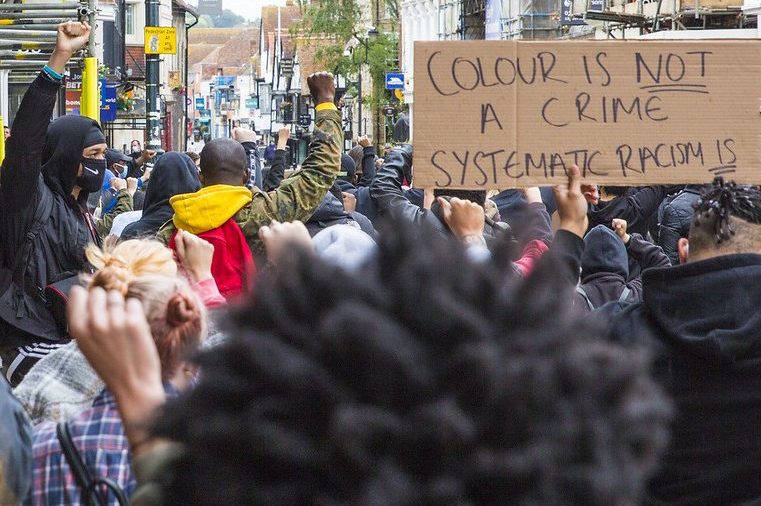
Losing our way?
In the winter of 2017, the Adult Principal Social Worker Network (APSWN) published its report ‘Who is leading the way?’
It was an enquiry into the diversity of adult social care leadership, both in local authorities and the APSWN itself. It will come as no surprise that in both cases we were found wanting.
The representation of Black, Asian and other minoritised staff groups was nearly non-existent and certainly did not reflect the diverse workforce that makes up social care.
The sector duly noted the report, commented and in some cases gave the usual “adult social care is a fully inclusive employer” response.
In its closing paragraphs, the report asked “Has social care got an institutional problem we are ignoring?” The lack of loud criticism may leave us either ignorant or comfortable in our thinking, but it is time to openly challenge the premise and honestly address this question.
Social work is a profession that prides itself on its values base, ethical approach and passion for equality, yet anti-racist practice seems to shy away from engaging on this issue. It’s time to look honestly at what’s going wrong and make positive changes. We would not accept racism elsewhere in public service and social care should be no exception.
It is not just time for debate but time for action.

Difficult truths, hidden in plain sight
The report as good as stated that institutional racism was present and staring us in the face. Surely a call to action would follow and change would happen. Even if it took a few years, surely the journey would start?
Sadly, the pace and visible action has, if we are honest, hardly set the world on fire. Some positive action and initiatives have commenced, such as development of leadership training. There are also many key people across the country advocating for equality and pushing to make a difference, such as those leading on the development of a workforce race equality standard (WRES) for social care.
However, the drive towards condemning and reforming anti-racist organisations - and more widely acknowledging the ongoing opportunities afforded by white privilege - has been slow.
In the winter of 2019, two years after the APSWN report, a small group came together to look at the work of Skills for Care (SfC) and Karen Linde in the development of a WRES in social care. The idea that a WRES could at least be developed for use in local authority (LA) social care departments was quickly followed by meetings, coffee and thinking on how this could become a reality.
Whilst COVID-19 impacted on the pace of this work this year, it did not cease. In fact, the murder of George Floyd further highlighted the need to progress this work now more than ever. We intend to offer the first stepping-stone to truly embracing and embedding anti-racist practice and culture within our sector’s leaders, employers and the diverse professionals that work within it.

Making a start
In October this year, the working group held a launch event setting out the first phase of implementing the WRES and how to participate. Attendance far exceeded our hopes with positive yet honest and open conversations. Local authorities were then invited to express interest in being part of the first phase of WRES adopters.
We had many applications which honestly outlined the challenges but also highlighted a commitment and drive to achieve long-term meaningful change for people who experience racism.
We were keen to make sure there was good representation across the country and include LAs of different sizes and demographics, all committed to working together across child, family and adult social care departments and at different stages on their journey.
We are now proud to announce those LAs uniting to learn with us how to better understand the reality of being a marginalised employee in social care, both through data and the sharing of personal experience.
The WRES will allow them to develop action plans, as well as facilitating a single national report to pull learning together and establish the national actions needed.
The first full year will also allow us to test our methodologies, meet with staff in local authorities and learn from one another.
We will all make mistakes and likely be frustrated by the lack of pace on occasion, but this is a positive step forward and one many years in the making – especially for those colleagues most impacted by institutional racism.
The WRES is not the only answer and will make change in and of itself, but it is a commitment and one that many LAs have taken on, acknowledging the journey will need to be open and responsive.
The 18 LAs joining the WRES in April 2021 are:
-
Barking and Dagenham, Bexley, Birmingham, Brent, Brighton and Hove, Bristol
-
Hertfordshire, Hounslow, Kent, Lancashire, Leeds, Liverpool
-
Merton, Norfolk, Nottinghamshire, Richmond & Wandsworth, Southwark, Stoke-on Trent
2 comments
Comment by Gerry Calder posted on
No Thurrock?
Comment by Celia Dunn posted on
This is a really great article. However, I just want to point out that Social Workers are not just recruited with LA's, but within the NHS and Third Sector. How can we get on board with this?